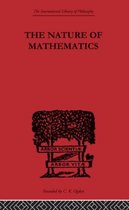Remarks on the Foundation of Mathematics
Afbeeldingen
Sla de afbeeldingen overArtikel vergelijken
- Engels
- Paperback
- 9780631125051
- 19 maart 1981
- 448 pagina's
Ludwig Wittgenstein
(Bron: Wikipedia. Beschikbaar onder de licentie Creative Commons Naamsvermelding/Gelijk delen.)"
Samenvatting
This substantially revised edition of Wittgenstein's Remarks on the Foundations of Mathematics contains one section, an essay of fifty pages, not previously published, as well as considerable additions to others sections. In Parts I, II and III, Wittgenstein discusses amongst other things the idea that all strict reasoning, and so all mathematics, are built on the 'fundamental calculus' which is logic. These parts give the most thorough discussion of Russell's logic. He writes on mathematical proof and the question of where the proofs of mathematics get their force and cogency, if they are not reducible to proofs in logic. Thsi leads him to discuss'contradiction in mathematics' and 'consistency proofs'. He works against the view that there is a sharp division between 'grammatical propositions' and 'empirical prepositions'. He asks us at one point to imagine a people who made no distinction between the applied mathematics and pure mathematics, although they counted and calculated. Could we say they had proofs? Here is a feature of his method which becomes more imporatnt; what Wittgenstein calls, at least half seriously, 'the anthropological method in philosophy'. This emerges in Parts V, VI and VIII.
In Part VI, published here for the first time, Wittgenstein brings togeher the view that in mathematics proofs ae 'concept forming' and the view that language and logic and mathematics 'presuppose' common ways of acting and of living among the people who give tham and are convinced by them. Part VIII now has a fuller discussion of difficulties in the notion of 'following a rule' in calculation and the notion of logical necessity.
This substantially revised edition of Wittgenstein's Remarks on the Foundations of Mathematics contains one section, an essay of fifty pages, not previously published, as well as considerable additions to others sections. In Parts I, II and III, Wittgenstein discusses amongst other things the idea that all strict reasoning, and so all mathematics, are built on the 'fundamental calculus' which is logic. These parts give the most thorough discussion of Russell's logic. He writes on mathematical proof and the question of where the proofs of mathematics get their force and cogency, if they are not reducible to proofs in logic. Thsi leads him to discuss'contradiction in mathematics' and 'consistency proofs'. He works against the view that there is a sharp division between 'grammatical propositions' and 'empirical prepositions'. He asks us at one point to imagine a people who made no distinction between the applied mathematics and pure mathematics, although they counted and calculated. Could we say they had proofs? Here is a feature of his method which becomes more imporatnt; what Wittgenstein calls, at least half seriously, 'the anthropological method in philosophy'. This emerges in Parts V, VI and VIII.
In Part VI, published here for the first time, Wittgenstein brings togeher the view that in mathematics proofs ae 'concept forming' and the view that language and logic and mathematics 'presuppose' common ways of acting and of living among the people who give tham and are convinced by them. Part VIII now has a fuller discussion of difficulties in the notion of 'following a rule' in calculation and the notion of logical necessity.
Productspecificaties
Inhoud
- Taal
- en
- Bindwijze
- Paperback
- Oorspronkelijke releasedatum
- 19 maart 1981
- Aantal pagina's
- 448
- Illustraties
- Nee
Betrokkenen
- Hoofdauteur
- Ludwig Wittgenstein
- Tweede Auteur
- Ludwig Wittgenstein
- Hoofdredacteur
- G. H. Von Wright
- Tweede Redacteur
- Rush Rhees
- Co Redacteur
- G. E. M. Anscombe
- Hoofduitgeverij
- Wiley-Blackwell
Vertaling
- Eerste Vertaler
- G. E. M. Anscombe
Overige kenmerken
- Editie
- 3
- Extra groot lettertype
- Nee
- Product breedte
- 135 mm
- Product hoogte
- 23 mm
- Product lengte
- 211 mm
- Studieboek
- Ja
- Verpakking breedte
- 229 mm
- Verpakking hoogte
- 29 mm
- Verpakking lengte
- 229 mm
- Verpakkingsgewicht
- 610 g
EAN
- EAN
- 9780631125051
Je vindt dit artikel in
- Categorieën
- Boek, ebook of luisterboek?
- Boek
- Taal
- Engels
- Beschikbaarheid
- Leverbaar
- Studieboek of algemeen
- Algemene boeken
Kies gewenste uitvoering
Prijsinformatie en bestellen
De prijs van dit product is 69 euro en 99 cent.- Prijs inclusief verzendkosten, verstuurd door bol
- Ophalen bij een bol afhaalpunt mogelijk
- 30 dagen bedenktijd en gratis retourneren
- Dag en nacht klantenservice
Rapporteer dit artikel
Je wilt melding doen van illegale inhoud over dit artikel:
- Ik wil melding doen als klant
- Ik wil melding doen als autoriteit of trusted flagger
- Ik wil melding doen als partner
- Ik wil melding doen als merkhouder
Geen klant, autoriteit, trusted flagger, merkhouder of partner? Gebruik dan onderstaande link om melding te doen.








